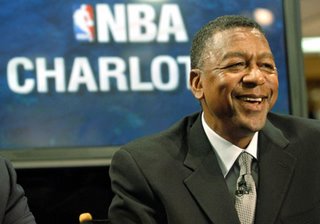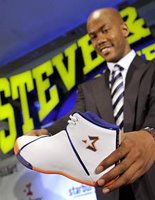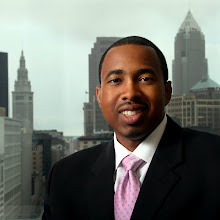
 THESE are America's black billionaires. All two of them, according to Forbes magazine's annual list of the richest 400 Americans.
THESE are America's black billionaires. All two of them, according to Forbes magazine's annual list of the richest 400 Americans.This year's list is all billionaires, meaning that for the first time, no one with fewer than 10 digits in the asset column qualified (and they say the rich aren't getting richer).
That only Oprah and Bob -- who needs last names or descriptors to know who they are -- are the only African-Americans in the Billionaire Boys and Girls Club is no surprise. He was the first to join in 2001 after he sold BET; she joined shortly thereafter and that, as they say, was that. For the record: Oprah tied with several other Billies at number 242 with an estimated $1.5 billion fortune, Bob and several others tied for 374th place with $1 billion even, proving, perhaps that it is lonely at the top but not necessarily so for middle of the road moguls.
But seriously, the perpetuity of Oprah and Bob on Forbes list begs a few questions, like when will black billionaires three, four, five or ten join them on the list and where will their money come from? A good percentage of the other Forbes-listers inherited their money, while the others made their fortunes on everything from oil to tech to sports. The lone two African-Americans on the list are self-made media entrepreneurs -- after all, nobody's black daddy until Bob had a billion to leave behind . Will the same hold true for the next to join the list, or will, say, a black investment banker or tech entrepreneur beat the next black media baron to the punch?
And perhaps the better question is when will someone take on the task of ranking the wealthiest African-Americans in the country? (If any of my editors are reading, I'm waiting for your call on this one.) One thing's for sure: we already know who will come in and first and second on that list.

